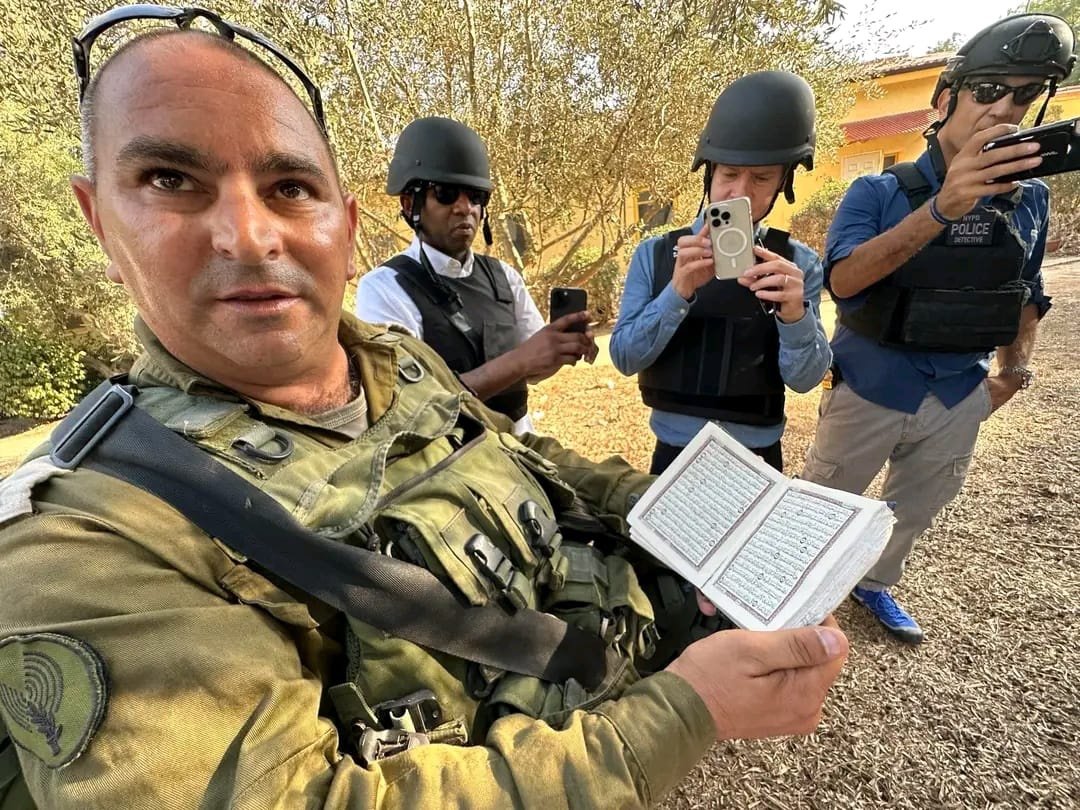A Roadmap to Ceasefire: Facilitating Dialogue Between Muslims and Israel

The escalating casualties in Gaza demand immediate attention and action. The staggering loss of life and destruction cannot be overlooked any longer. Every effort must be made to halt the devastating toll on human lives and infrastructure in Gaza.
In response to this urgent need for a ceasefire, I propose a set of prerequisites to be pursued jointly by the Organization of Islamic Cooperation (OIC) and the Arab League:
1. A unanimous, unequivocal condemnation of the events that occurred in Israel on October 7th.
2. Complete condemnation and collective isolation of violent extremists within Palestinian factions.
3. Immediate and unconditional release of all hostages without harm.
4. A joint expression of condolence to the victims of the October 7th events, endorsed by the leadership of both OIC and the Arab League.
Approximately a month after the terrorist attacks on Israel and its citizens on October 7th, my wife, along with other political and religious leaders from New York, and I found ourselves walking through the devastated kibbutz of Kfar Aza, merely a mile from Gaza. With tears in our eyes, we listened to survivors recount their harrowing experiences—the most atrocious crimes committed against Jews since the Holocaust.
As we traversed the historic streets of Jerusalem, witnessing the palpable fear and uncertainty etched on the faces of Israelis—known for their resilience and unwavering pride in their homeland—I was struck by the profound impact of October 7th. It had shattered not only the physical landscape but also the emotional, mental, and spiritual fabric of world Jewry, particularly those residing in the holy land.

Just a day before the attack, Israelis exuded confidence, determination, and strength. However, in the aftermath of October 7th, they found themselves grappling with their lowest levels of confidence, fighting not only for their survival as individuals but also for the existence of their homeland. It became evident to me that Israel isn’t merely battling Hamas, Islamic Jihad, or the Palestinian Authority—it’s fighting for its very survival and the survival of the Jewish people. The only distinction between the Nazis and Hamas lies in the fact that Israel possesses a formidable military capability, enabling it not only to survive but also to thrive.

During my visits to the holy land in November 2022 and 2023, I couldn’t help but recognize that, albeit inadvertently, Hamas prevented Israel from descending into internal strife. The stark shift from disunity and discord among Israelis in November 2022 to complete solidarity in November 2023 was undeniable.
It is imperative to acknowledge that Arabs and Jews have an undeniable connection to the Holy Land. However, the perpetuation of hatred and violence is antithetical to the spirit of this sacred land.

Israel’s ties to the land trace back to biblical times, with the United Nations recognizing its legitimacy in 1948. Quoting the words of Moses to his people:
*”O my people! Enter the holy land which Allah hath assigned unto you, and turn not back ignominiously, for then will ye be overthrown, to your own ruin.” (Qur’an 5:20, 21)*
Similarly, Palestinians have a legitimate claim to a nationality, as articulated in the Universal Declaration of Human Rights. However, this right should not be wielded as a tool for the arbitrary deprivation of others’ nationality or the denial of their right to exist.
While the Abraham Accords signify a positive step towards regional stability and cooperation, it’s essential to remember that these agreements echo a sentiment expressed over fourteen hundred years ago. The Quran emphasizes the unity of believers, regardless of their faith, underscoring the shared reward for righteousness and belief in God:
*”Those who believe (in the Qur’an), and those who follow the Jewish (scriptures), and the Christians and the Sabians,- anyone of them who believe in God and the Last Day, and work righteousness, shall have their reward with their Lord; on them shall be no fear, nor shall they grieve.” (Qur’an 2:62)*
The Arab League, despite its internal divisions, bears a collective responsibility for fostering conflicts within its member states. The Quran urges believers to hold fast to unity, reminding them of their past enmities and the grace of Allah, which transformed them into brethren:
*”And hold fast, all together, by the rope which Allah (stretches out for you), and be not divided among yourselves; and remember with gratitude Allah’s favor on you; for ye were enemies and He joined your hearts in love, so that by His Grace, ye became brethren; and ye were on the brink of the pit of Fire, and He saved you from it. Thus doth Allah make His Signs clear to you: That ye may be guided.” (Qur’an 3:103)*
While the Palestinian cause enjoys universal legitimacy, it’s crucial to discern between genuine representatives and those who perpetuate violence and extremism. Despite the challenges inherent in a two-state solution, it remains the most viable option to address anti-Israel sentiments and promote peace in the region.
With sufficient land and a willingness to adjust colonial borders, there exists a tangible opportunity to accommodate both Israel and Palestine. Moreover, the abundance of nations within the Arab League and the Organization of Islamic Cooperation presents ample room for the coexistence of a small Jewish state within its historical homeland.
Regrettably, the ongoing conflict has relegated Israel to the unfortunate distinction of being the only nation where preschoolers’ first lessons involve seeking refuge in bomb shelters. Similarly, Palestinians endure the plight of statelessness, with their children taught to resist from a tender age.
Despite numerous challenges, Israel’s establishment in 1948 and its resilience in the face of subsequent threats attest to its enduring presence. Hamas’s actions on October 7th inadvertently solidified Israel’s permanence and restored its sense of invincibility.
In conclusion, while Hamas’s actions may seem paradoxical, they ultimately contributed to Israel’s preservation.
Sheikh Musa Drammeh
President, Muslims Israel Dialogue
Email: muslimsisraeldialogue@gmail.com
718-822-5555







